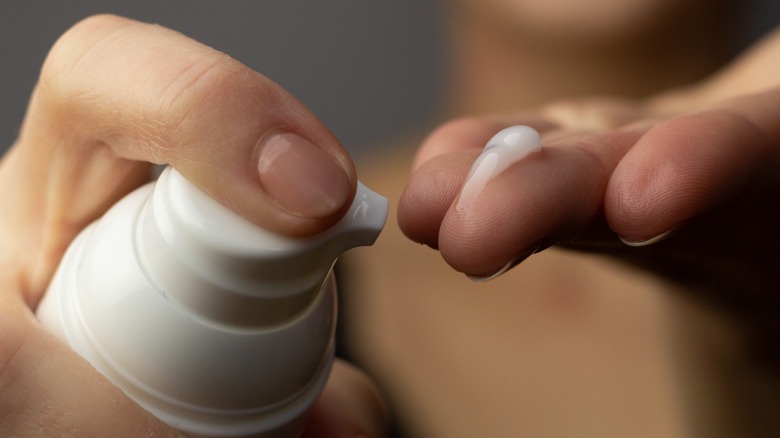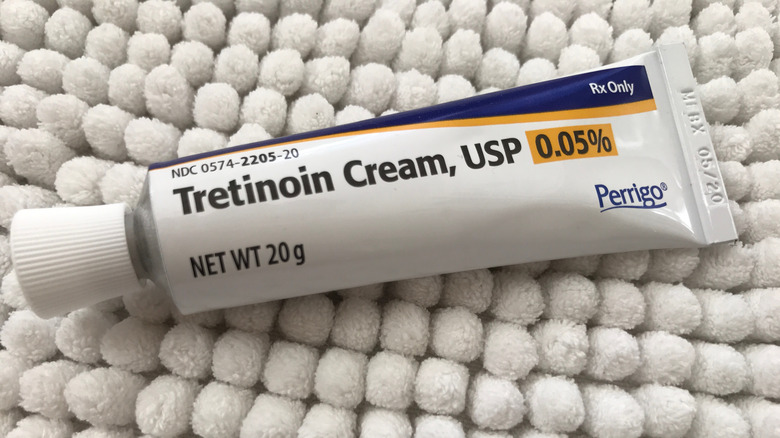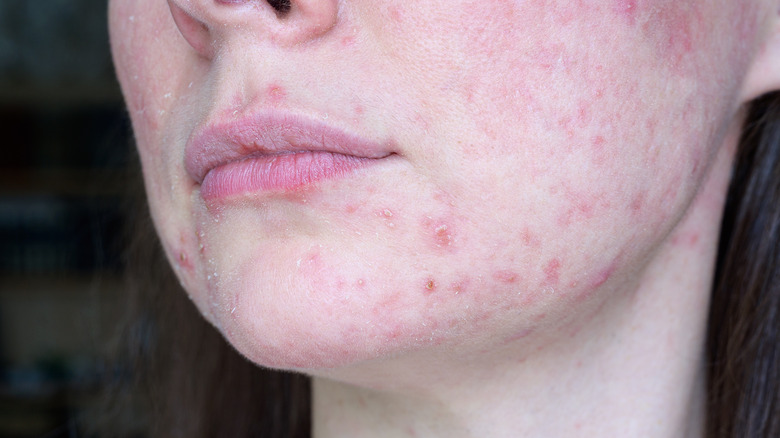What's The Difference Between Retinol And Tretinoin?
Being the largest human organ, the skin protects the body against pathogens, regulates temperature, and regulates humidity, according to the Cleveland Clinic. However, the skin goes through a lot every day and is exposed to external elements, leaving it susceptible to various conditions. Therefore, the right skin care is all the more important, and this is when vitamin A comes in. It's an essential nutrient that contributes to the immune system and eyesight (via Cleveland Clinic).
Various topical creams of vitamin A exist, including retinol and tretinoin. Healthline states that retinol is a form of vitamin A that's usually available over the counter. Tretinoin, on the other hand, is a synthetic derivative of vitamin A used for various skin-related disorders (via Harvard Medical School). Both drugs fall under the retinoid category, a group of vitamin A-sourced compounds that are crucial in various dermatology treatments. However, their differences go beyond their unique formulations. Here is how retinol and tretinoin vary according to use.
Differences between retinol and tretinoin
Tretinoin, also known as all-trans retinoic acid (ATRA), was the first retinoid to be approved by the U.S. Food and Drug Administration (FDA) as an effective acne treatment (via Harvard Medical School). According to the Mayo Clinic, tretinoin can help clear skin pores, reduce the sun's harmful effects on the skin, and lighten skin by replacing an older layer with a newer one.
On the other hand, retinol proliferates and exfoliates the skin by increasing skin cell and collagen production to curb wrinkles and fine lines (via Cleveland Clinic). Retinol's proven dermatologic effectiveness over the years explains the drug's position on the World Health Organization's list of essential medicines.
According to Healthline, these two medications differ in strength and availability. The source further explains that retinol can stay in the body for much longer. It can even transform into tretinoin, assisting in various biological functions. On the flip side, the source classifies tretinoin as a more concentrated version of retinol, which is less strong and may help people with sensitive skin.
What conditions do retinoids treat?
A 2012 study published in the journal Dermato Endocrinology explains that retinol facilitates collagen production and offers anti-aging benefits. The same applies to tretinoin, which can reduce skin pigmentation, wrinkles, and other causes of ultraviolet-related aging, according to the study. The American Cancer Society further adds that retinoids can reduce the risk of certain skin cell cancers. However, the source warns that birth defects have been linked to the use of retinoids.
Pseudofolliculitis barbae is another inflammatory condition retinoids can help with, according to MedicalNewsToday. The American Osteopathic College of Dermatology says this condition affects about 60% of African-American men and happens when certain parts of the skin under the beard become inflamed due to growing hairs.
Generally speaking, retinoids like retinol and tretinoin can improve cell turnover, smoothen your skin, help breakouts, and act as a long-term treatment for various dermatological conditions (via Healthline). However, not all retinoids work the same. Therefore, it's crucial to speak to your doctor first before using them.



